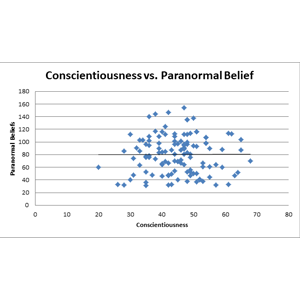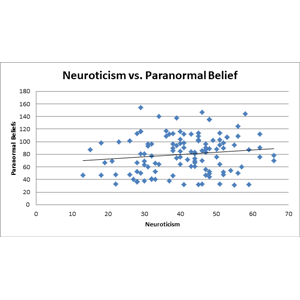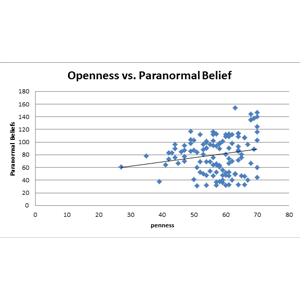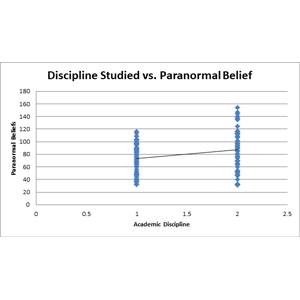





Paranormal belief describes a wide variety of beliefs which violate the fundamental principles of nature. This includes belief in extrasensory perception, demonic possession, telekinesis, voodoo etc. Previous research such as Perdue (2013) and Williams and Roberts (2016) indicated a relationship between paranormal belief and personality factors while Wilson (2018) reported a decrease in paranormal beliefs due to a critical thinking intervention. Therefore, based on this research, the present study aimed to examine the relationship between conscientiousness, openness, neuroticism, academic discipline (scientific/ non-scientific) and paranormal beliefs. It employed a correlational design which utilized an online survey methodology. One hundred and twenty participants responded to the survey, 40 men, 74 women and 6 who preferred to self-identify. All participants were students of IADT, 60 of which studied a scientific discipline while 60 studied a non-scientific discipline. Eight multiple regressions were conducted with personality and academic discipline as the independent variables consistently while total paranormal belief, traditional religious belief, belief in psychics, witchcraft, superstition, spiritualism, extraordinary life forms, and precognition were the dependent variables. Results indicated that conscientiousness, openness, neuroticism and academic discipline were not significantly related to paranormal belief, traditional religious belief, belief in psychics, witchcraft, superstitious beliefs and belief in extraordinary life forms. However, neuroticism and academic discipline did significantly predict spiritualism and belief in precognition. The results of the present study, in light of previous research, appear to indicate that personality, except for neuroticism, has little impact on paranormal belief. Rather, the present study found that those who study a scientific academic discipline have significantly lower paranormal beliefs, which supports the findings of Wilson (2018). However, it would be prudent for future research to determine whether the study of a scientific discipline decreases paranormal beliefs or whether those who choose to study scientific disciplines have lower paranormal belief to begin with.





